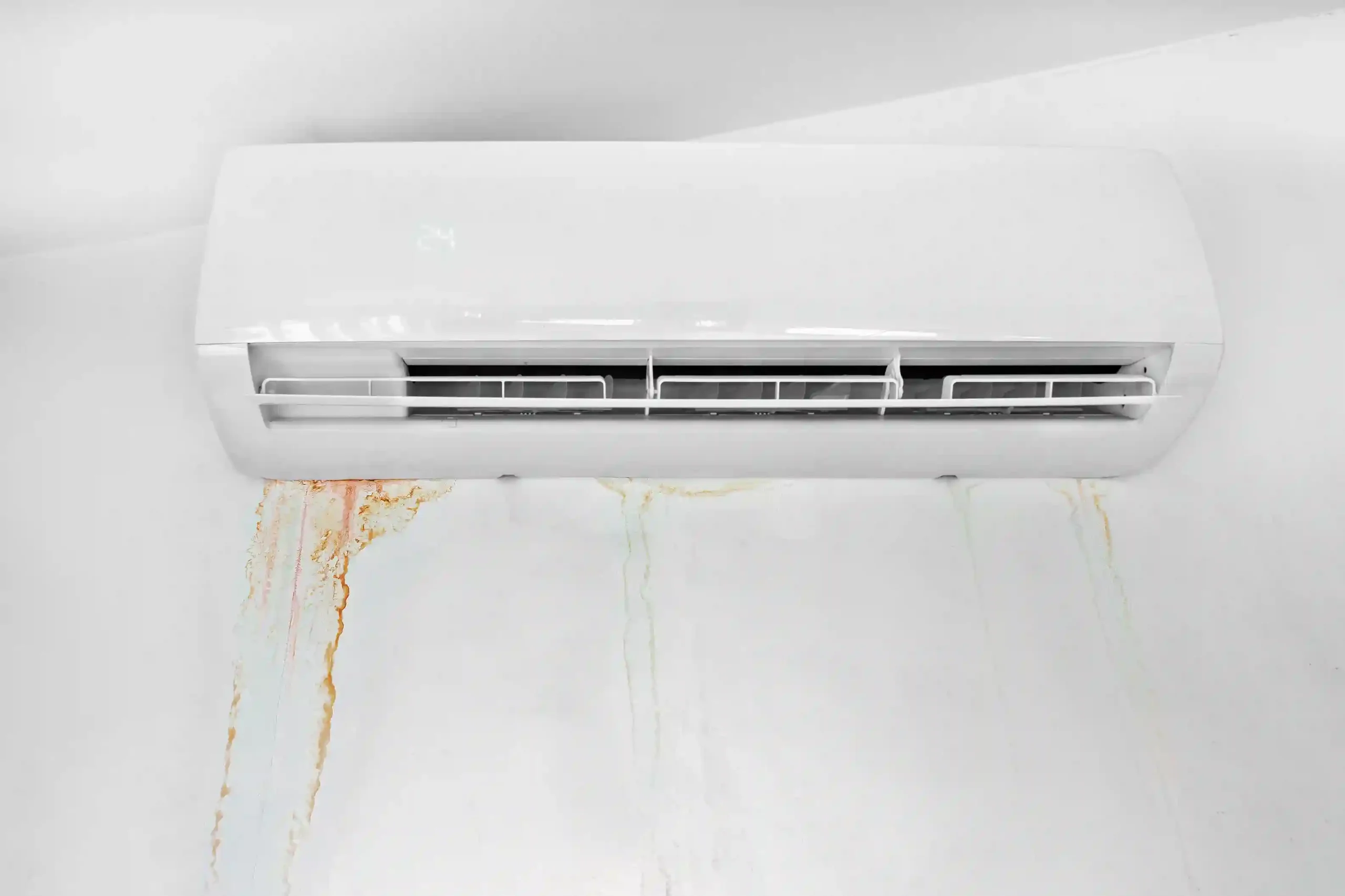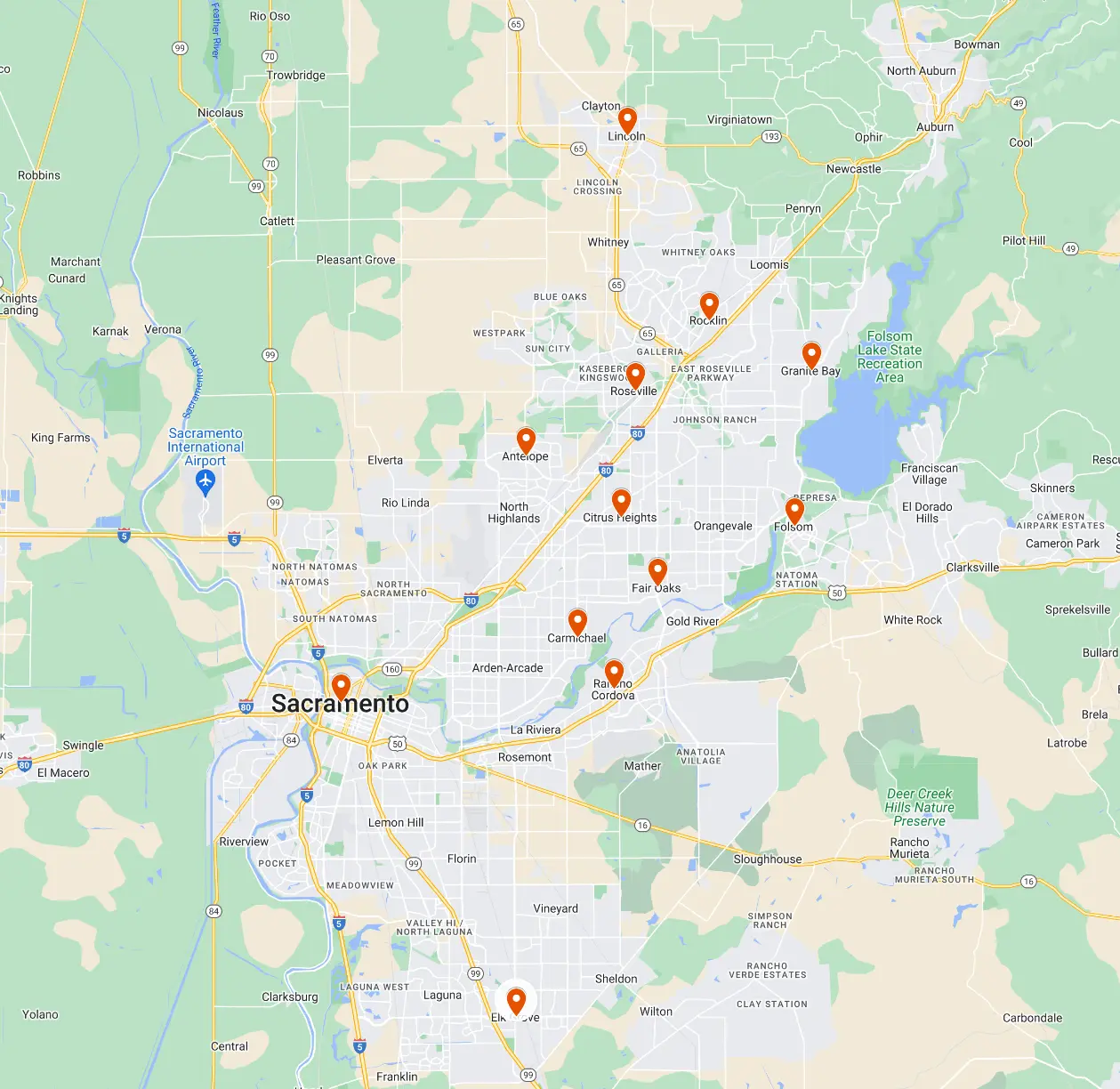Water in places it doesn’t belong is never a good sign, especially when it’s coming from your air handler. From clogged drain lines to frozen coils, several issues could be at play. Ignoring the leak could cost you more than just a mop and bucket. It can soak into your floors, walls, or ceilings. Plus, a leaky system has to work harder, which often translates to higher energy bills. So,
why is your air handler leaking water?
If you’re noticing water around your air handler, don’t wait for it to get worse. Curious to know why your air handler might be leaking water and how to stop it before it becomes a bigger problem? We’ll share expert tips from Clarke and Rush Mechanical to help you prevent future issues and solve them if they ever come your way.
Why Is My Air Handler Leaking Water?
If you’ve noticed your air handler dripping water, it’s important to understand why. Here are the most common causes behind the problem:
Clogged Drain Line
The drain line carries moisture from your system to the outside. Over time, dirt, algae, or other debris can block the line and cause water to back up and spill around your air handler. This is one of the most frequent reasons for leaks and should be checked first.
Dirty or Frozen Evaporator Coil
When your evaporator coil gets dirty or airflow is restricted, ice can build up on the coil. As the ice melts, excess water overflows instead of draining properly. Low refrigerant levels can also lead to freezing, creating the same problem.
Damaged Drain Pan
Your air handler’s drain pan collects water dripping from the evaporator coil. But rust or cracks can develop and allow water to leak before it reaches the drain line.
Improper Installation or Sizing
If your air handler isn’t installed correctly or isn’t the right size for your system, it may struggle to drain water effectively which can lead to pooling and leakage.
How to Find the Exact Cause
If your air handler is leaking, here’s what to look for:
- Inspect the Drain Line
Look for clogs or blockages in the condensate line. Check for water pooling near the system or leaking from the line. - Examine the Evaporator Coil
Check for ice buildup or dirt on the coil. Restricted airflow or refrigerant problems are common here. - Inspect the Drain Pan
Look for rust, cracks, or standing water in the pan. A damaged pan won’t hold water effectively and will need to be replaced. - Assess Installation Quality
If the system seems mismatched or improperly leveled, it might not drain correctly. Professional help can solve this issue. - Call a Technician if Needed
For refrigerant issues or unclear causes, an HVAC technician can diagnose and resolve the problem better than any DIY fixes.
Risks of Ignoring a Leaky Air Handler
Structural Damage to Your Home
Water leaks don’t just stay contained, they spread. Leaking water can soak into walls, floors, and ceilings, weakening the structure of your home and causing expensive repair costs if ignored.
Mold and Mildew Growth
Moisture-filled places are the perfect ground for mold and mildew to thrive. This can pose health risks, especially for those with allergies or respiratory issues.
Increased Energy Bills
A system with leaks often works harder than it should which means wasted energy and higher utility bills for you.
How to Fix and Prevent Air Handler Leaks
DIY Solutions for Minor Issues
Clearing a Clogged Drain Line
- Turn off your HVAC system to stop water flow.
- Find the condensate drain line near the air handler.
- Use a wet/dry vacuum to suck out debris from the line.
- Flush the line with a mixture of vinegar and water to prevent future clogs.
- Turn the system back on and monitor for any additional leaks.
Cleaning the Evaporator Coil
Gently clean the coil with a soft brush or commercial coil cleaner. Regular cleaning prevents dirt buildup and airflow restrictions.
When to Call a Professional
Sometimes, a DIY fix just isn’t enough to get the job done. Call a professional if:
- You think the problem is related to refrigerant issues or if you found frozen coils.
- The drain pan is cracked or rusted and needs replacement.
- The system seems improperly installed or sized.
Maintenance Tips
Prevent future leaks by following these maintenance tips from Clarke and Rush Mechanical experts:
✔Clean the Drain Line Regularly
✔Check the Evaporator Coil
✔Schedule Annual HVAC Inspections
✔Inspect the Drain Pan
✔Work with Experienced Installers
Stop Leaks Before They Start with Expert Insights from Clarke and Rush Mechanical
A leaky air handler can lead to costly repairs, higher energy bills, and health risks from mold or mildew. Common causes like clogged drain lines, dirty coils, or a cracked drain pan often start small but they can quickly grow into bigger problems.
If you have a leaky air handler at home that you’ve been delaying repairs on for months, Clarke and Rush Mechanical is here to help. Call us at (916) 609-2667, visit 4411 Auburn Blvd, Sacramento, CA, 95841, or check out clarke-rush.com for more details.







